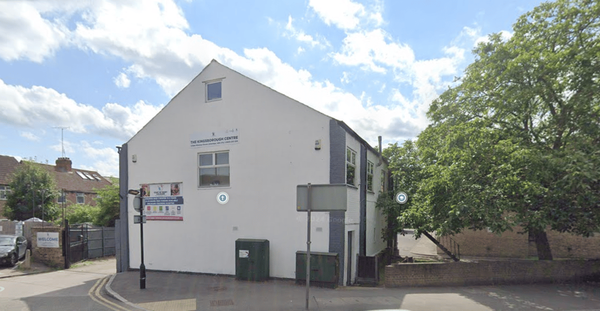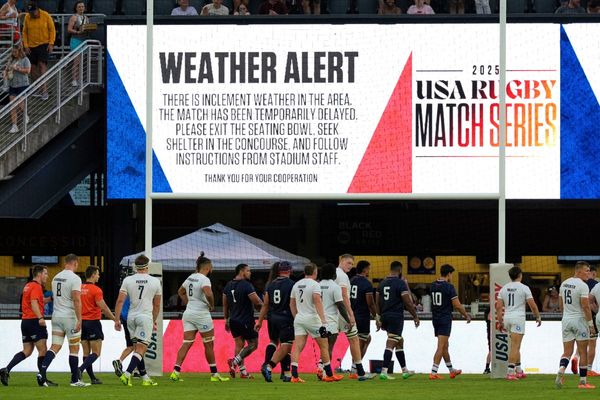
A television show about a group of black teenagers coming of age in an urban sprawl evokes a particular image. Of gritty tragedy and gang warfare in a long-suffering, over-policed community. But, while Grime Kids doesn’t shy away from how cruel the world can be to young black teens in London, it has an infectious joy that makes you want to put on a bright tracksuit and blast So Solid Crew from an old Discman.
At the start it looks like a more typical portrayal: in steely black and white, a group of black boys cower behind a wall looking terrified. One draws deeply on an asthma inhaler, his eyes darting from side to side. Then suddenly the show transforms into bright Technicolor: hip-hop beats drop and the scene is revealed to be a group of students having a water fight – gleefully splashing each other and darting through the streams from water guns.
The series has been adapted from the grime pioneer and BBC radio presenter DJ Target’s 2018 era-defining book. His credentials are rock solid, having been a founding member of the Roll Deep collective, which counted grime icons Wiley, Dizzee Rascal, Tinchy Stryder and Skepta among its members. This television version has been written by playwright Theresa Ikoko (best known for co-writing the critically adored teenage-girl drama Rocks). It follows a group of friends fresh from finishing their GCSEs, obsessing over music and having fun while on the brink of manhood. Set in the early 00s, when grime was emerging, our ensemble look to pirate radio and the underground dance scene as the path to a glittering future. There is sweet romantic Dane (Yus Jamal Crookes), tech-savvy Bishop (Tienne Simon), warm-hearted but naive Bayo (Juwon Adedokun), pensive Junior (Gabriel Robinson) and prodigal son Kai (Shanu Hazzan), who returns to Tower Hamlets after a few years in Bristol. They dream of breaking into the music industry, and having the greatest summer of their lives while they’re at it. Naturally, at that age, friendships can prove just as intense and complicated as romances, and the show treats their bonds as fundamental. They find strength, joy and support in one another and even though they face a series of rude awakenings, their passion for grime never wavers.
The entire ensemble’s performances are charming, with a lived-in specificity. Despite not having been born when flip phones were the height of cool, they take on the language, fashion and swag of the era and never look as if they are cosplaying nostalgia for the pre-social media halcyon days. Kai is the crew’s secret weapon, with his natural charisma and rap skills shining through, even though his father views him as a grave disappointment. But it’s Hazzan who distinguishes himself as a true star in the making, pulling off the bright colours and terrible jeans of the time, while rocking a ruby red durag like he’s in the pages of Vogue. Swag aside, he is just as adept at quiet devastation as he is at portraying east London’s hottest new grime star. His innate coolness fills the screen, but he doesn’t mask the insecurities that plague Kai as he fights a tendency to internalise the way the world, and his own family, view him as good for nothing. The pain and rejection are funnelled into his art, scribbled furiously into bright notebooks, and his moments of triumph are moving and fully earned.
But behind the joy and fun in the scenes of open mics and house parties, there is a gentle tragedy in play – because these young people still view themselves as children, even when the world cannot. Bayo tugs at the heartstrings when he asks if “this is going to be our last summer as kids?”, given that any cursory glance at the news would show that 16-year-old black boys are viewed largely as men and often as threats. As Dane’s nan warns her grandson: “You don’t need to do anything wrong when you look wrong. You aren’t a baby any more. You are a black man in England.”
While a lot has changed, Grime Kids feels as box-fresh and funky as a new pair of Reeboks. It’s a show that doesn’t resort to cheap nostalgia but plays with our assumptions about the environment and era that birthed grime. In the present day, we might still struggle with allowing black kids to just be kids, valuing underground music scenes as proper art or embracing black joy on screen as we do black trauma. Grime Kids is not about finger-wagging or preaching but proof that there is still so much rich untapped talent out there and that we shouldn’t let anything get in the way of a good time.
• Grime Kids is on BBC Three and iPlayer.







